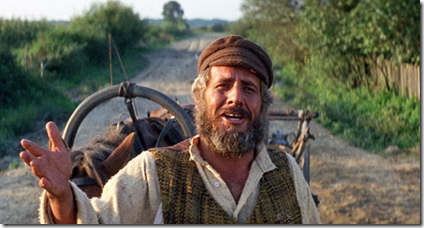 Guy: “I hate tradition!”
Guy: “I hate tradition!”
Same Guy: “I want to leave a legacy.”
Tradition often gets a bad wrap. And sometimes deservedly so. But tradition can actually have a positive impact on our well-being. Tradition can help us to stay grounded. I appreciate these words from Donna Rockwell, writing for Psych Alive:
Understanding that I do not live in a vacuum, that this period of time is connected to all other periods of time — those that preceded me and those that will come after — I become part of something larger than myself, part of the eternal mystery, taking my place in the fabric of life itself. It is during the holidays that our unique cultural traditions have the greatest potential to help in this process of self-definition, to contribute to well being, and to cultivate an all-important sense of belonging and a healthy perspective of our place in the world.
But we also know the dangers of tradition. You could almost argue that Jesus was crucified because of tradition gone bad. Part of their hatred of him was because he eschewed their traditions. He was new wine into old wineskins.
So, is tradition good or bad?
I love this quote from Os Guinness (or maybe John Seel):
Tradition as the living faith of the dead and traditionalism as the dead faith of the living are two very distinct things. –Os Guinness, No God But God, 19
This helps us to see the difference between tradition and traditionalism. Tradition is when the living faith of another is passed down to a present generation. In this sense, tradition is a good thing. It’s the guy saying he wants to leave a legacy. If that legacy is grounded in Christ, then it’s a good thing.
But if the living faith is not passed on to the next generation then tradition quickly becomes traditionalism. We go through the motions and mimic what our ancestors did, we fight to keep the outward expressions alive, but we have no part in the inner faith that gave rise to those outward expressions.
At this point tradition becomes deadly because it’s the “dead faith of living” but it is still masquerading as the legitimate thing. It carries the same name but it has lost its heart. It’s a zombie.
Andy Crouch, in his book Playing God, tells of the impact of zombie institutions:
Zombie institutions are institutions that have not faced the truth about their own failure. And because of their access to privilege—their ability to continue collecting rent—they continue to exist, crowding out institutions that might create true shalom. Zombie institutions are dedicated first and only to their own preservation, not to anyone’s flourishing. (Crouch, Playing God, 199)
He then speaks of zombie churches:
Because every church is built and sustained by volunteers, almost every church was at some point a thriving institution that contributed to real flourishing. But over time the imperatives of self-preservation can create a risk-averse culture that prevents continued learning and growth. Zombie churches exist to keep the lights on rather than to be the light in dark places; they turn inward rather than outward; they serve insiders and ignore outsiders. (Crouch, Playing God, 199-200)
What is the difference between tradition and traditionalism?
One word.
Life.